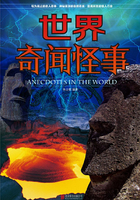(Further, how can there be any 'before' and 'after' without the existence of time? Or how can there be any time without the existence of motion? If, then, time is the number of motion or itself a kind of motion, it follows that, if there is always time, motion must also be eternal. But so far as time is concerned we see that all with one exception are in agreement in saying that it is uncreated: in fact, it is just this that enables Democritus to show that all things cannot have had a becoming: for time, he says, is uncreated. Plato alone asserts the creation of time, saying that it had a becoming together with the universe, the universe according to him having had a becoming. Now since time cannot exist and is unthinkable apart from the moment, and the moment a kind of middle-point, uniting as it does in itself both a beginning and an end, a beginning of future time and an end of past time, it follows that there must always be time: for the extremity of the last period of time that we take must be found in some moment, since time contains no point of contact for us except the moment. Therefore, since the moment is both a beginning and an end, there must always be time on both sides of it. But if this is true of time, it is evident that it must also be true of motion, time being a kind of affection of motion.)
The same reasoning will also serve to show the imperishability of motion: just as a becoming of motion would involve, as we saw, the existence of a process of change previous to the first, in the same way a perishing of motion would involve the existence of a process of change subsequent to the last: for when a thing ceases to be moved, it does not therefore at the same time cease to be movable-e.g. the cessation of the process of being burned does not involve the cessation of the capacity of being burned, since a thing may be capable of being burned without being in process of being burned-nor, when a thing ceases to be movent, does it therefore at the same time cease to a be motive. Again, the destructive agent will have to be destroyed, after what it destroys has been destroyed, and then that which has the capacity of destroying it will have to be destroyed afterwards, (so that there will be a process of change subsequent to the last,) for being destroyed also is a kind of change. If, then, view which we are criticizing involves these impossible consequences, it is clear that motion is eternal and cannot have existed at one time and not at another: in fact such a view can hardly be described as anythling else than fantastic.
And much the same may be said of the view that such is the ordinance of nature and that this must be regarded as a principle, as would seem to be the view of Empedocles when he says that the constitution of the world is of necessity such that Love and Strife alternately predominate and cause motion, while in the intermediate period of time there is a state of rest. Probably also those who like like Anaxagoras, assert a single principle (of motion) would hold this view. But that which is produced or directed by nature can never be anything disorderly: for nature is everywhere the cause of order.
Moreover, there is no ratio in the relation of the infinite to the infinite, whereas order always means ratio. But if we say that there is first a state of rest for an infinite time, and then motion is started at some moment, and that the fact that it is this rather than a previous moment is of no importance, and involves no order, then we can no longer say that it is nature's work: for if anything is of a certain character naturally, it either is so invariably and is not sometimes of this and sometimes of another character (e.g. fire, which travels upwards naturally, does not sometimes do so and sometimes not) or there is a ratio in the variation. It would be better, therefore, to say with Empedocles and any one else who may have maintained such a theory as his that the universe is alternately at rest and in motion: for in a system of this kind we have at once a certain order. But even here the holder of the theory ought not only to assert the fact: he ought to explain the cause of it: i.e. he should not make any mere assumption or lay down any gratuitous axiom, but should employ either inductive or demonstrative reasoning. The Love and Strife postulated by Empedocles are not in themselves causes of the fact in question, nor is it of the essence of either that it should be so, the essential function of the former being to unite, of the latter to separate. If he is to go on to explain this alternate predominance, he should adduce cases where such a state of things exists, as he points to the fact that among mankind we have something that unites men, namely Love, while on the other hand enemies avoid one another: thus from the observed fact that this occurs in certain cases comes the assumption that it occurs also in the universe. Then, again, some argument is needed to explain why the predominance of each of the two forces lasts for an equal period of time. But it is a wrong assumption to suppose universally that we have an adequate first principle in virtue of the fact that something always is so or always happens so. Thus Democritus reduces the causes that explain nature to the fact that things happened in the past in the same way as they happen now: but he does not think fit to seek for a first principle to explain this 'always': so, while his theory is right in so far as it is applied to certain individual cases, he is wrong in ****** it of universal application. Thus, a ******** always has its angles equal to two right angles, but there is nevertheless an ulterior cause of the eternity of this truth, whereas first principles are eternal and have no ulterior cause. Let this conclude what we have to say in support of our contention that there never was a time when there was not motion, and never will be a time when there will not be motion.















